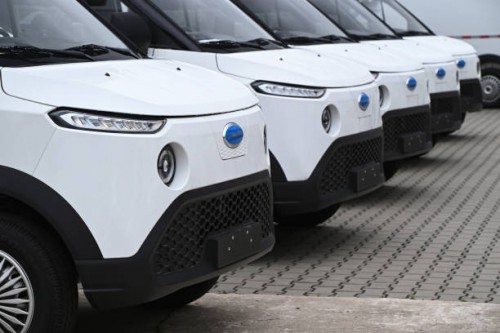Best Source for B2B Industry Trends, News and Updates

The U.S. automotive market has seen increased federal scrutiny of Chinese imports. Under Section 301 and updated regulations, tariffs have reached 27.5%, while the Inflation Reduction Act now requires electric-vehicle batteries and parts to be North America–sourced to qualify for federal tax credits. These changes directly affect imports from China, making them significantly more expensive for American consumers.
China, which currently manufactures around 62% of global EV batteries and commands a strong cost advantage, has seen its EV export growth drop sharply after years of explosive global expansion, including an 851% increase between 2020 and 2023. The U.S. market is one of the first major regions to experience a sharp contraction for Chinese-made EVs.
While overall Chinese EV exports decreased by about 18% globally in early 2025, the decline in U.S.-bound shipments were much worse, down 44% highlighting that American trade policy now plays a key role in this shift.
Industry insiders observe that key Chinese EV makers, like BYD and Chery, are focusing their exports on regions with fewer trade barriers, such as Latin America, the Middle East, and Southeast Asia. For example, Chery's total exports surged to over 1.14 million vehicles in 2024, largely focused outside North America.
In contrast, Chinese-made EV imports, once comprising perhaps 5–10% of the U.S. EV sales, now contribute noticeably less. With tougher tariffs and restrictive definitions for U.S. clean-energy credits, domestic automakers and local supply chains are gaining a competitive edge.
Market analysts predict that this reduction in imports may persist through 2026, unless China develops manufacturing capabilities in Latin America or Mexico to sidestep U.S. duties. Already, BYD has confirmed plans to build passenger‑vehicle plants in Mexico, though it remains politically cautious about fully entering the U.S. auto market.
With growing EV import restrictions in the United States, companies are exploring alternative sourcing strategies through international B2B platforms.
With traditional import channels constricted, many businesses are shifting to B2B marketplaces to source competitive EV options, especially fleet operators, dealerships, and corporate buyers. Platforms like Tradewheel.com, EC21, and Made-in-China B2B portals are gaining traction.
These platform features hundreds of EV manufacturers and suppliers, known for its B2B sales model and dedicated account managers, making it easier for buyers to negotiate directly with Chinese producers. EC21 also reports a growing number of verified EV buying leads, offering customized trade connections between importers and manufacturers.
Outlook for the U.S. Market
Despite lower imports, analysts believe U.S. EV adoption will continue to grow, but with a domestic preference. Automakers are increasing American battery production and plant expansion, fueled by tax incentives tied to local sourcing. The drop in Chinese competition could accelerate investment in U.S. production capacity and reshape the global supply chain.
Overall, the 44% drop signals a major pivot in the U.S.–China auto dynamic. While still a manufacturing powerhouse, Chinese EV makers must navigate new trade barriers. Meanwhile, U.S. policy tools are evidently reshaping EV import flows, and sourcing strategies are rapidly growing via B2B marketplaces.
